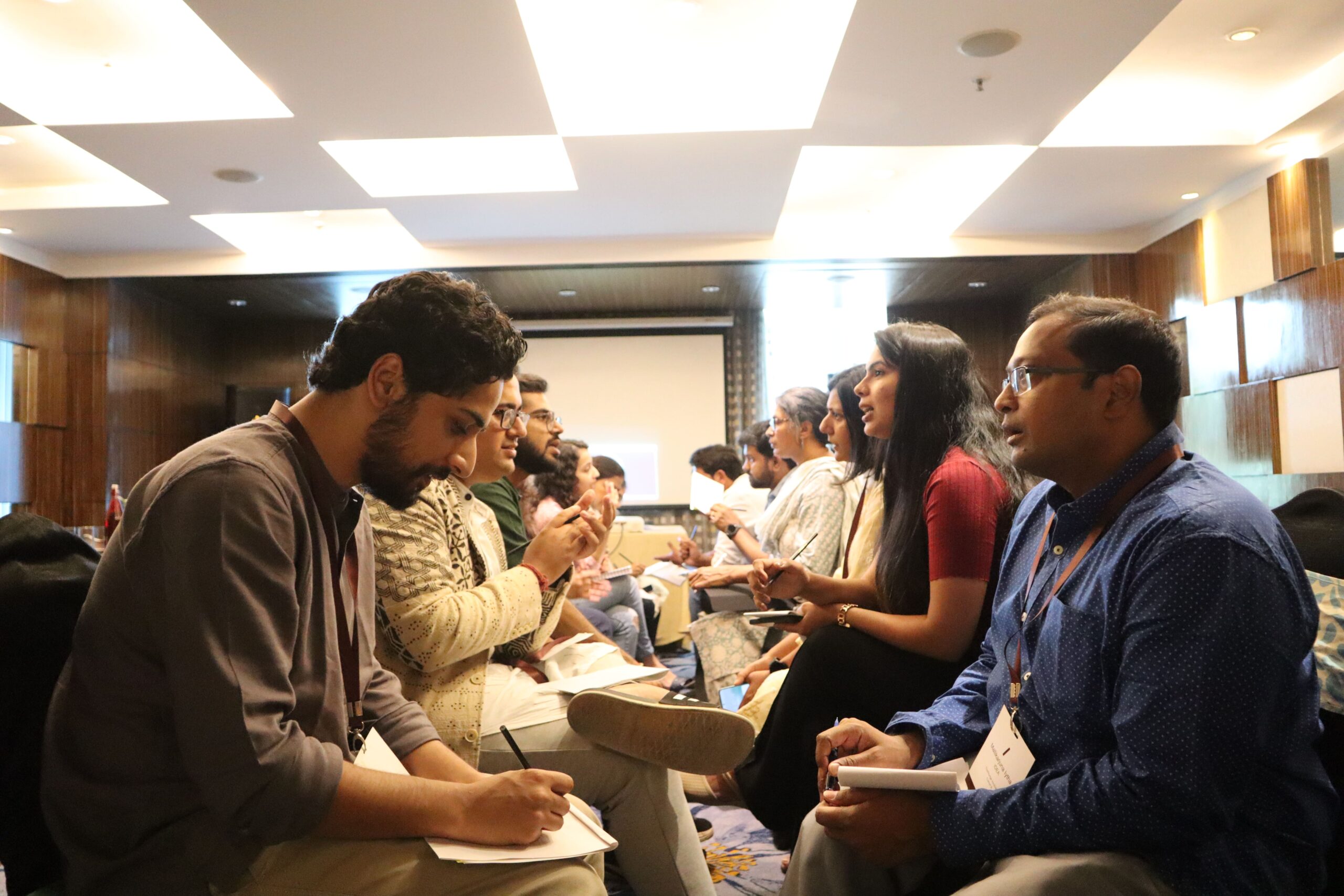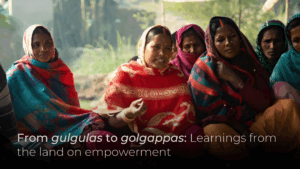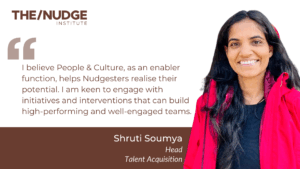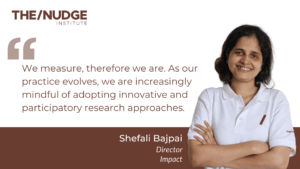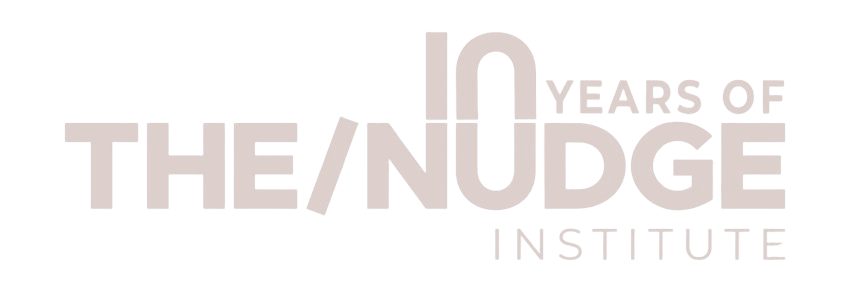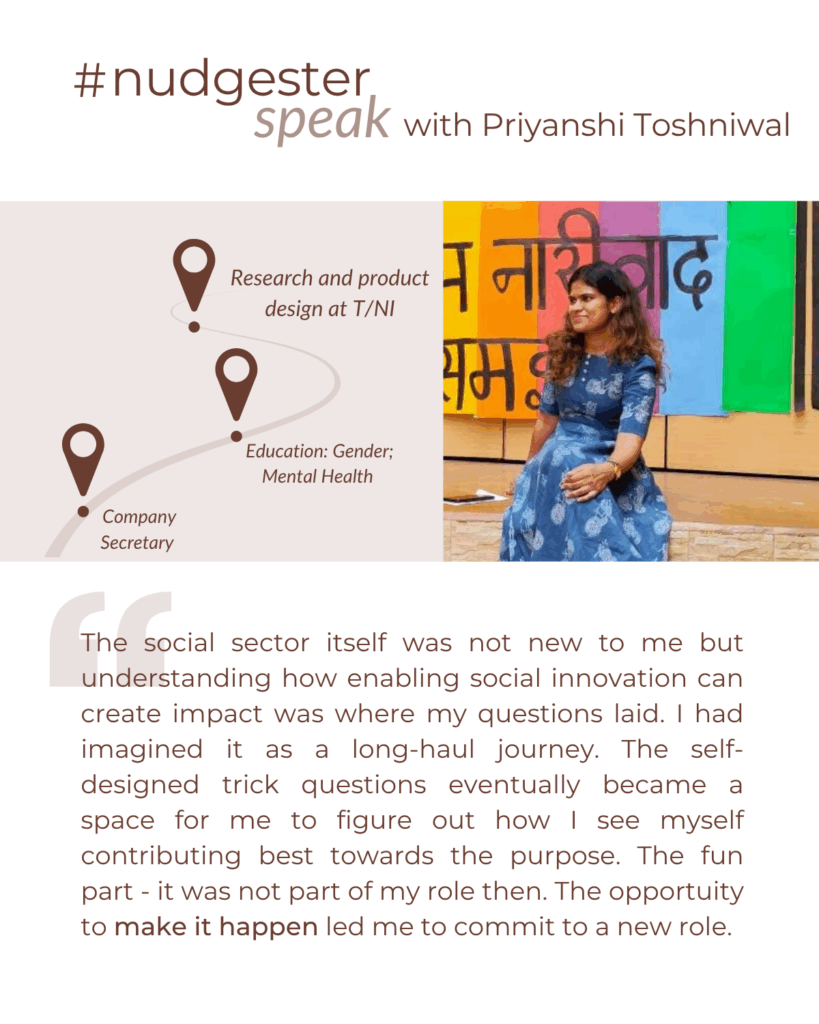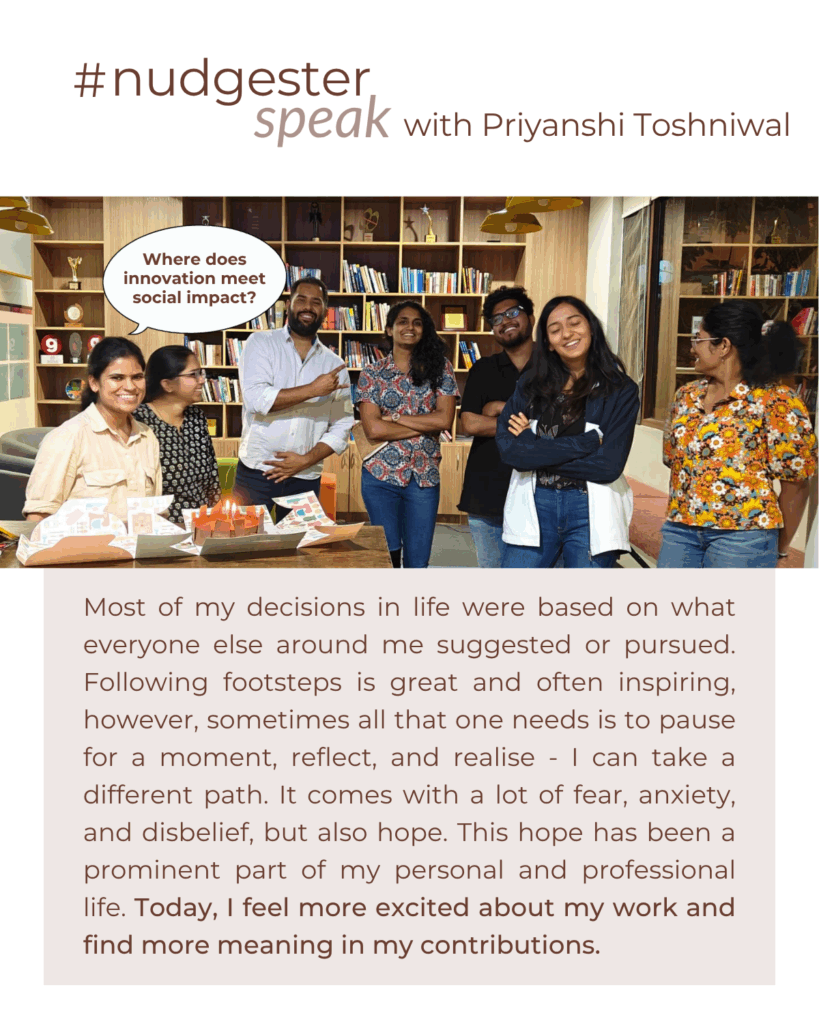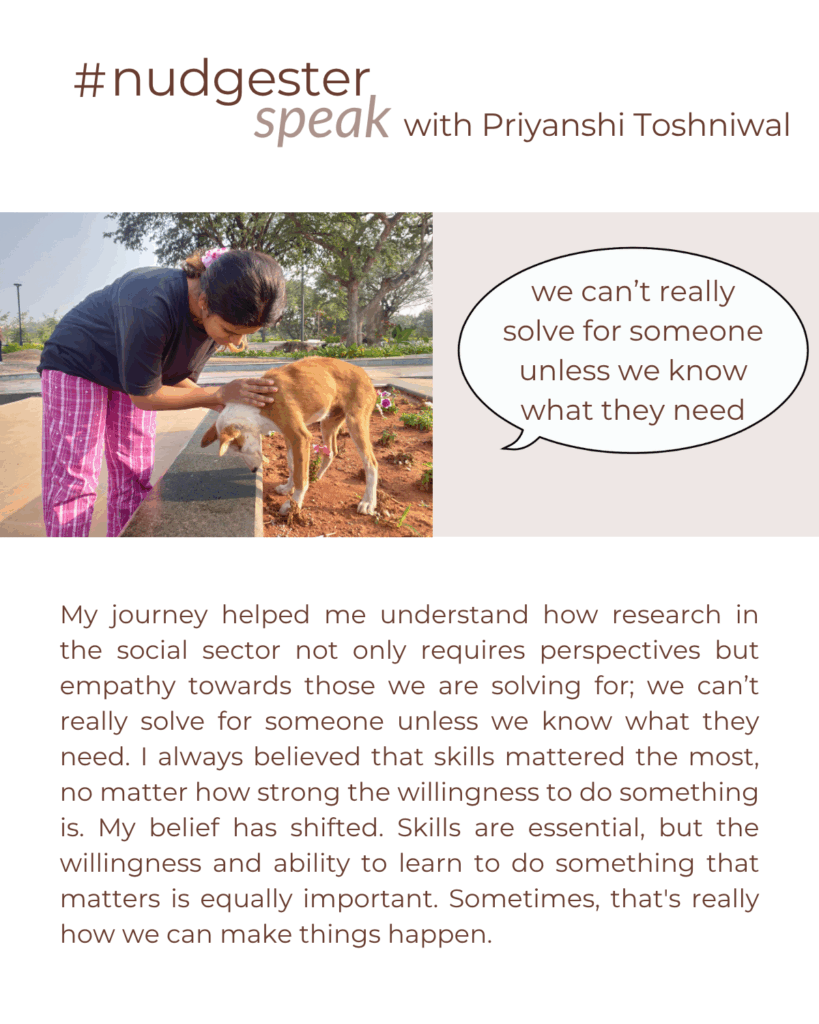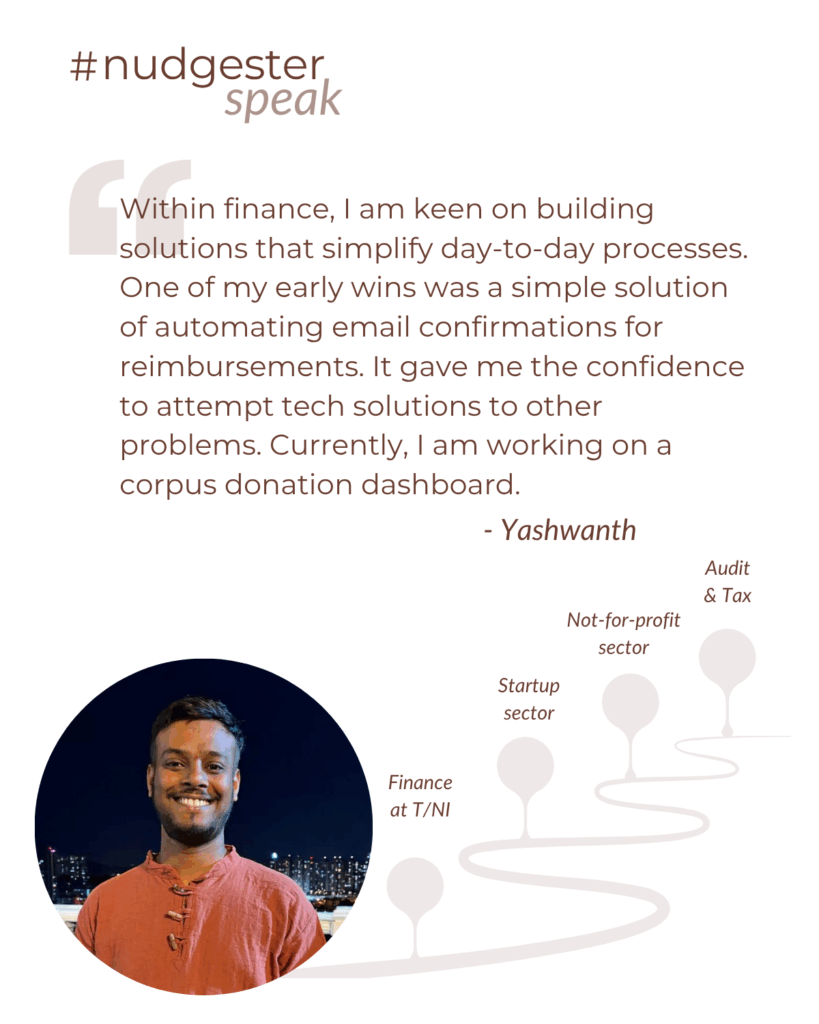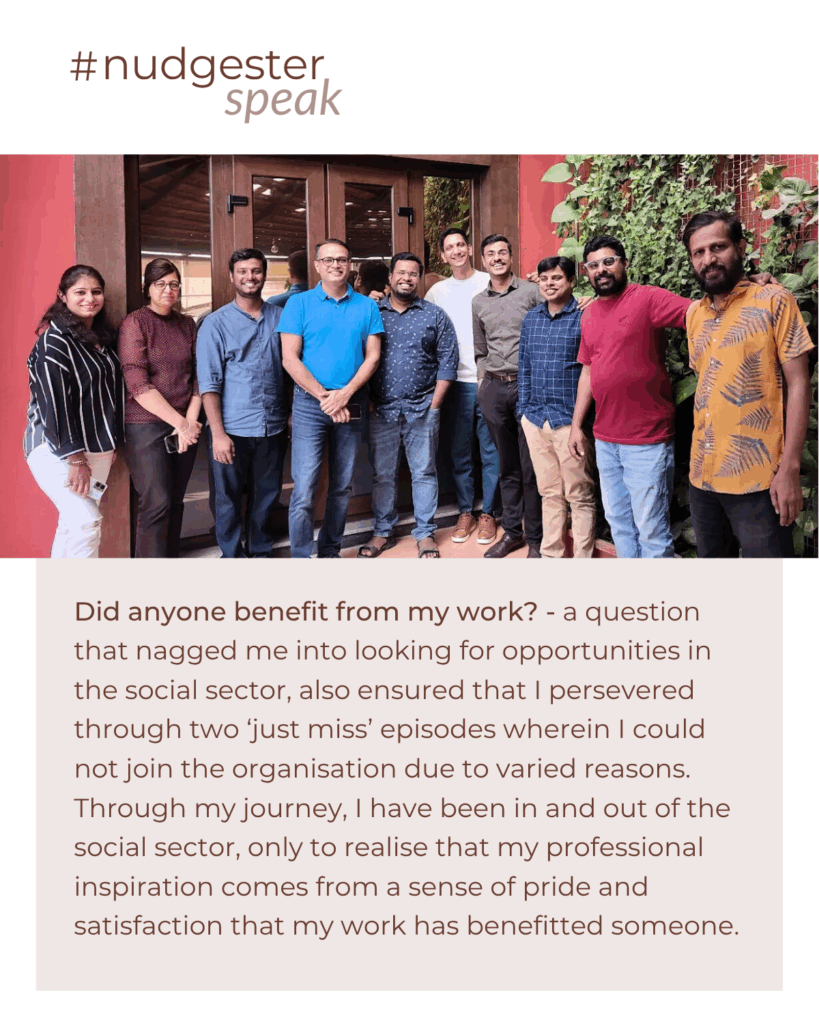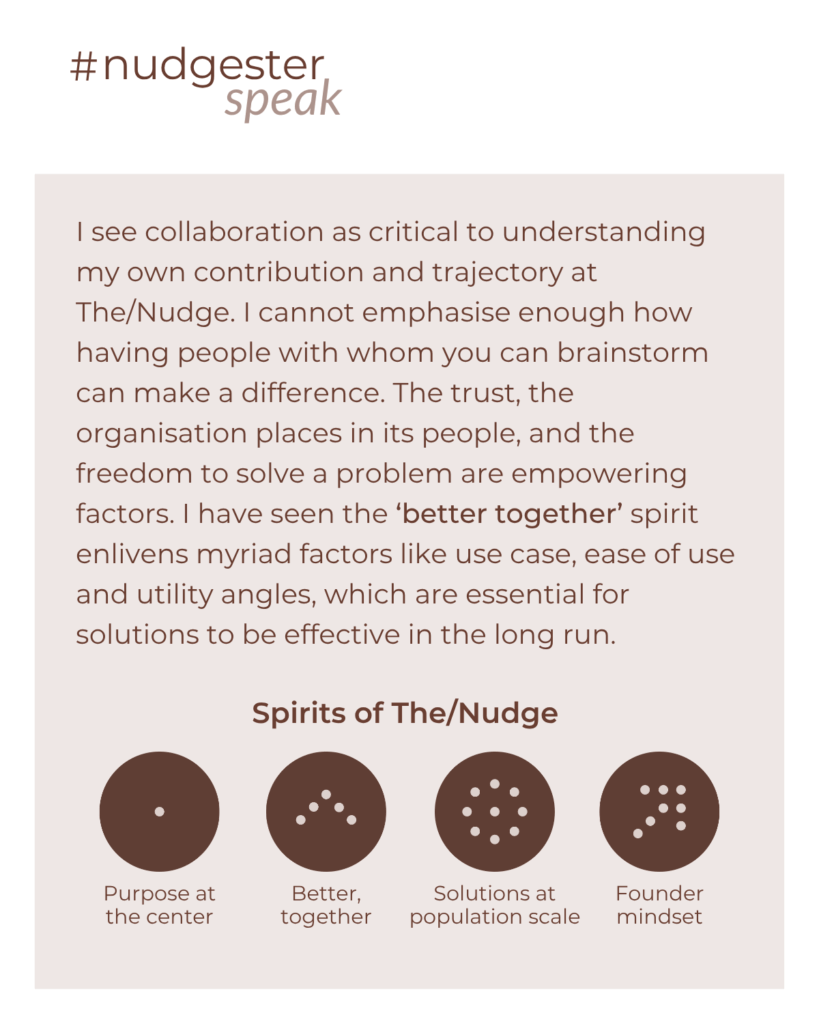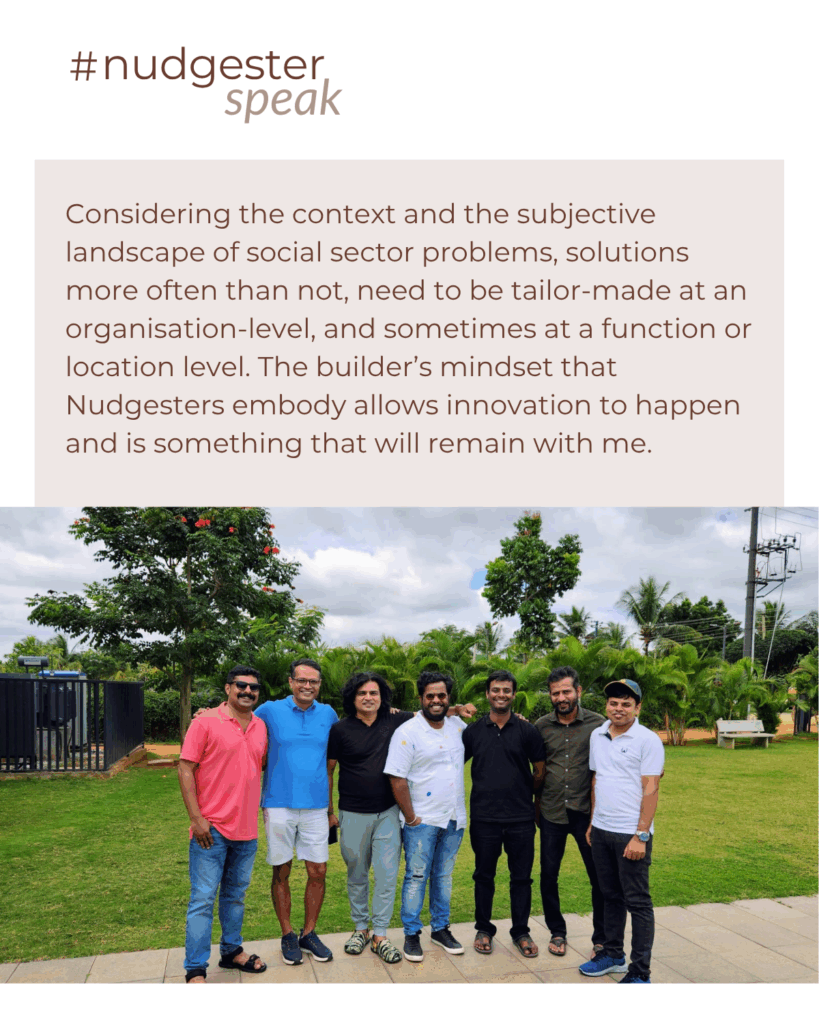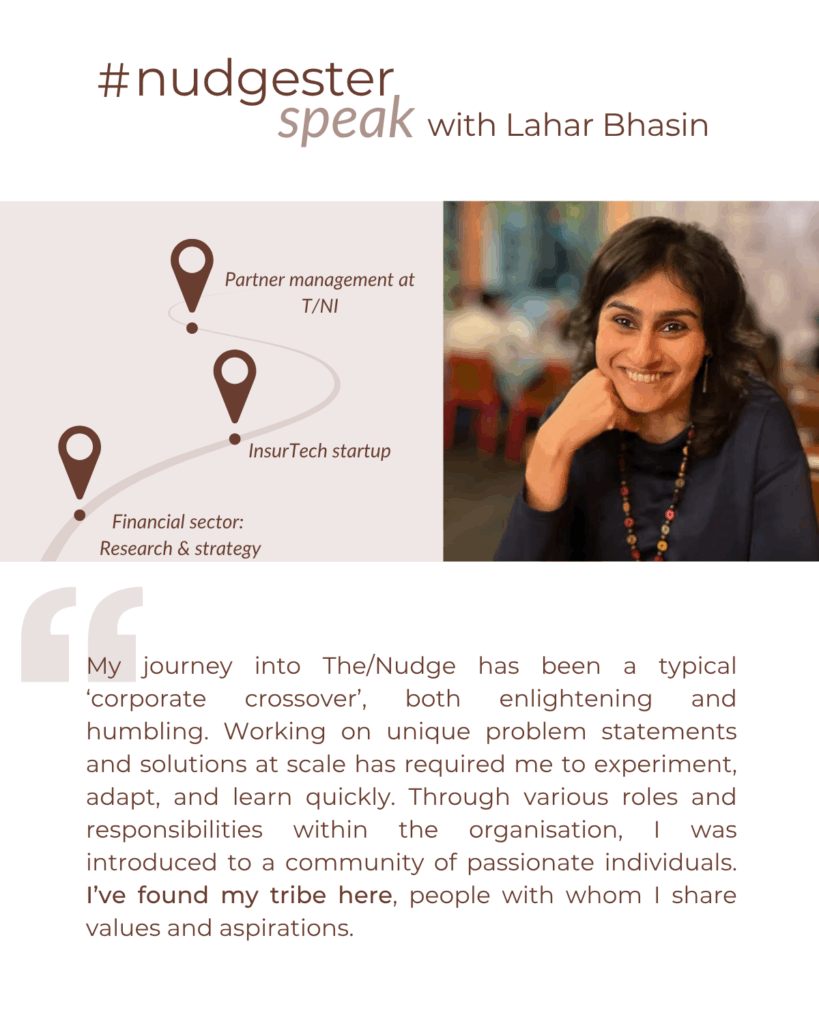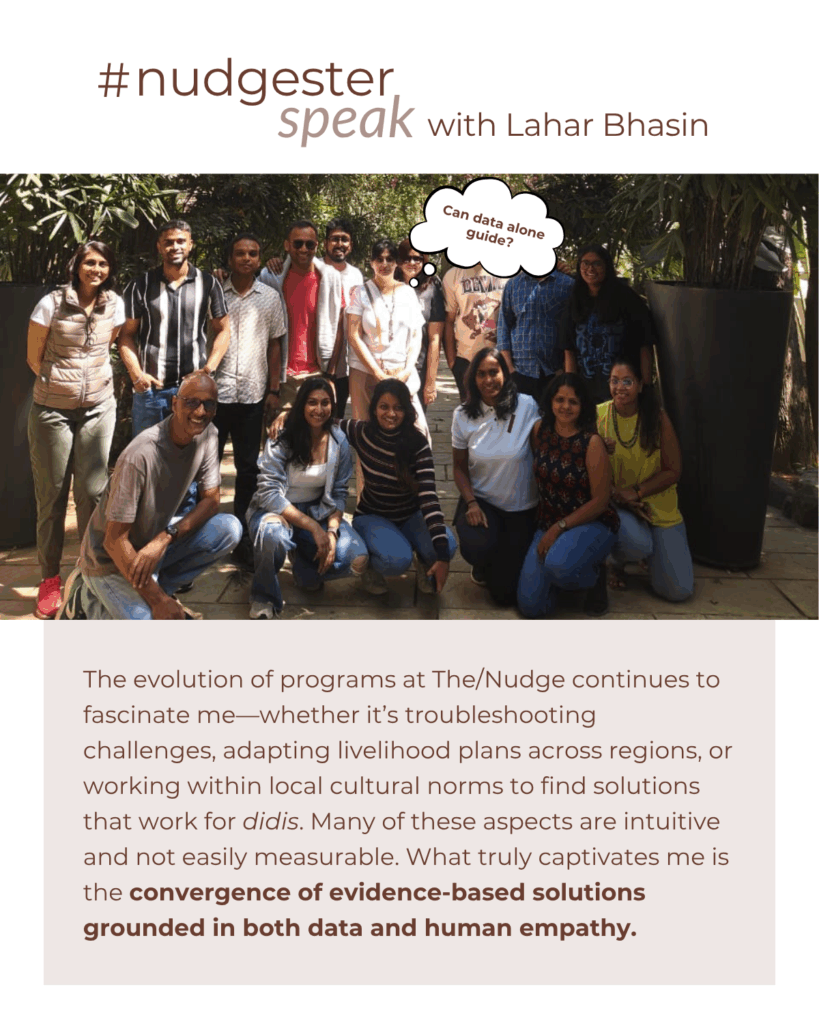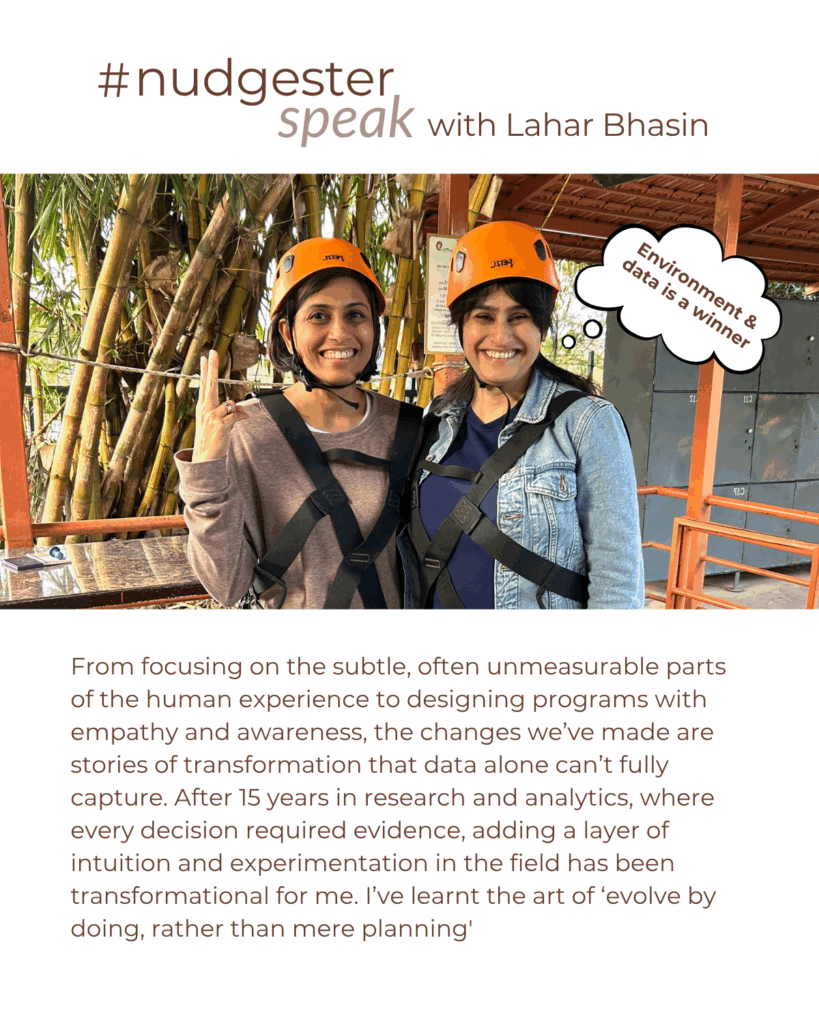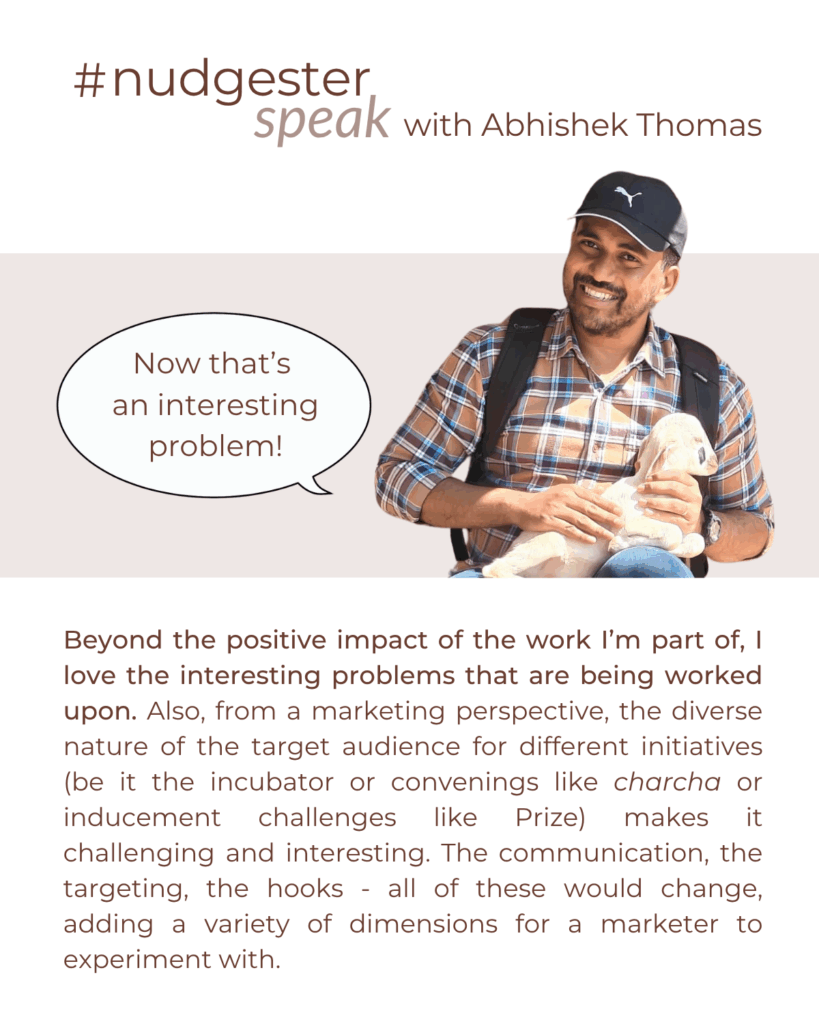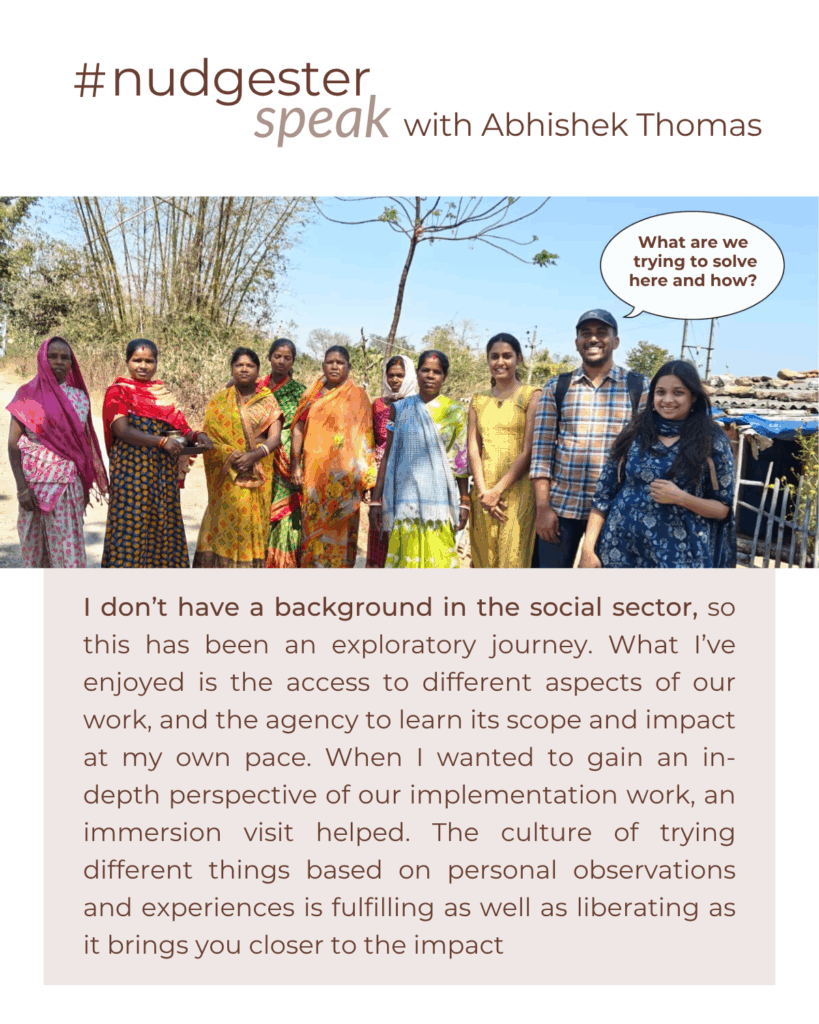At The/Nudge, our strategy for navigating around resource constraints, political instability, and cultural differences revolves around adaptability, collaboration, and a deep understanding of local contexts.
Resource Constraints
Resource constraints often demand innovative solutions. At The/Nudge, we prioritise efficiency and creativity and have a strong bias for action. We collaborate with other organisations to pool expertise and, at times, also resources. Moreover, we focus on sustainable solutions that maximise impact with minimal resources, such as leveraging technology like the Sarathi app in our ‘End Ultra Poverty’ program to streamline processes or implementing scalable models requiring fewer inputs. We also have a very strong fundraising team that works closely with corporates, foundations, and HNIs to raise money for our programs and initiatives.
Cultural Differences
Cultural differences are central to the success of our initiatives, and we recognise the importance of cultural sensitivity and community participation. Our approach involves extensive community engagement, listening to local perspectives, and integrating cultural norms and values into project design. This not only fosters ownership and sustainability but also helps overcome potential barriers and misunderstandings. For example, in the Asha Kiran program, understanding the cultural constraints of women in the areas we are working in, their aspirations, and their motivations helped us make a robust product design that will show better adoption. Projects rarely unfold as planned, necessitating the ability to pivot when necessary.
Secondly, collaboration is fundamental. By working closely with diverse stakeholders, we harness collective strengths and resources for greater impact. Finally, humility and a willingness to learn from local communities are essential. Each project offers a chance for mutual exchange and growth, enriching our approach to development work.
Political Instability
As we work with the bureaucracy mostly, political instability does not impact us as much. However, transfers of officials or election schedules might delay or disrupt program timelines and create uncertainty. To mitigate this, we emphasise building robust relationships with local stakeholders, community leaders, and NGOs. Through open communication and mutual trust, we navigate through turbulent times more effectively. Flexibility in project planning and adaptability to changing circumstances play a vital role in this.
Note: This response is an effort to address the questions we couldn’t cover during our past jigyaasa. Stay tuned for more insights and answers from our in-house experts and leadership team.

